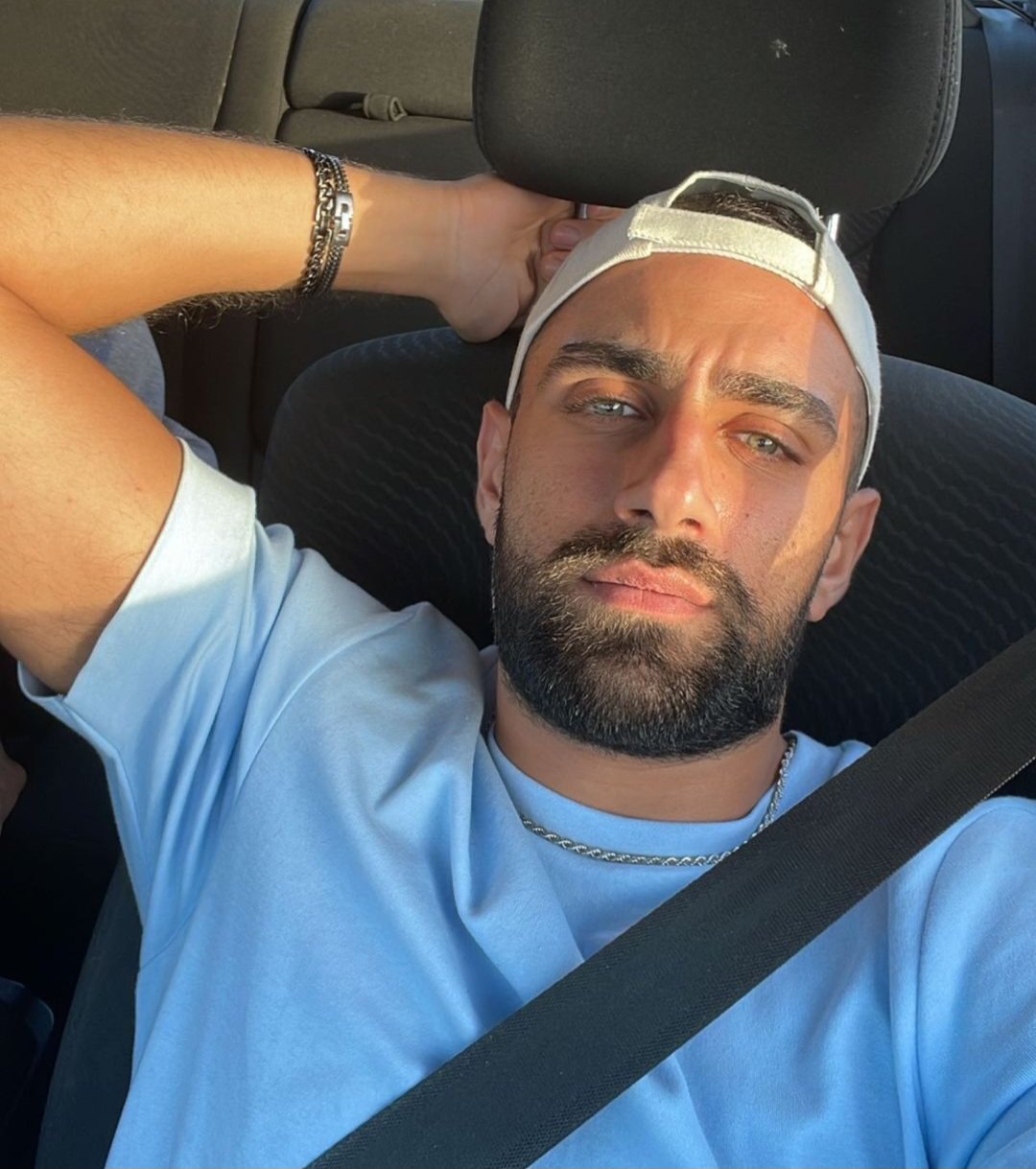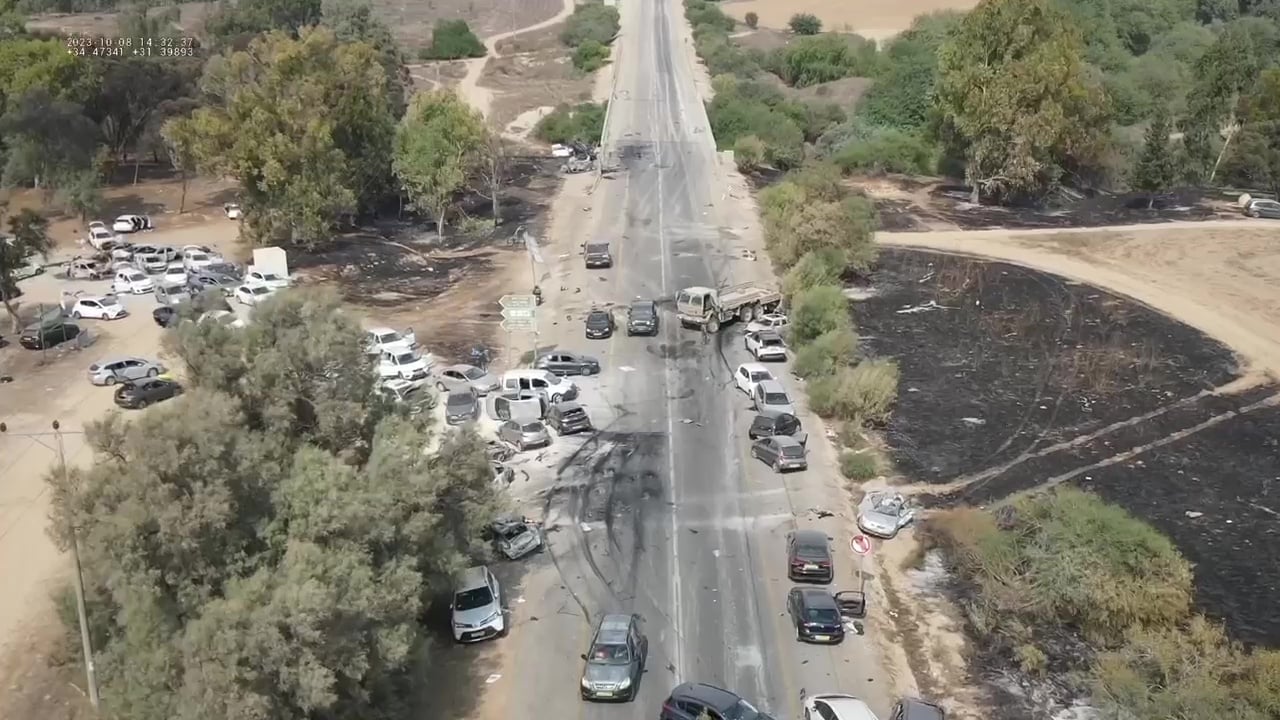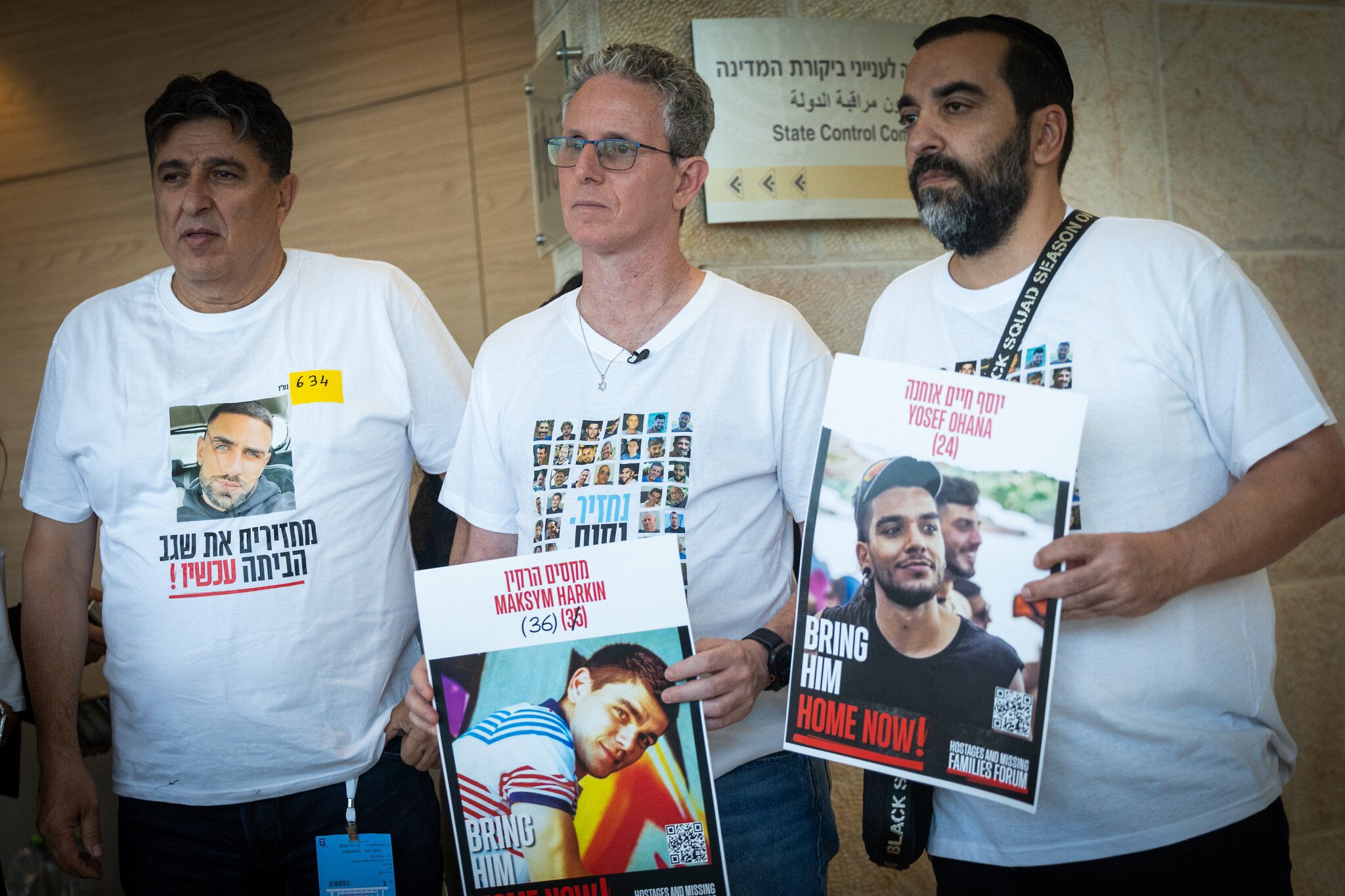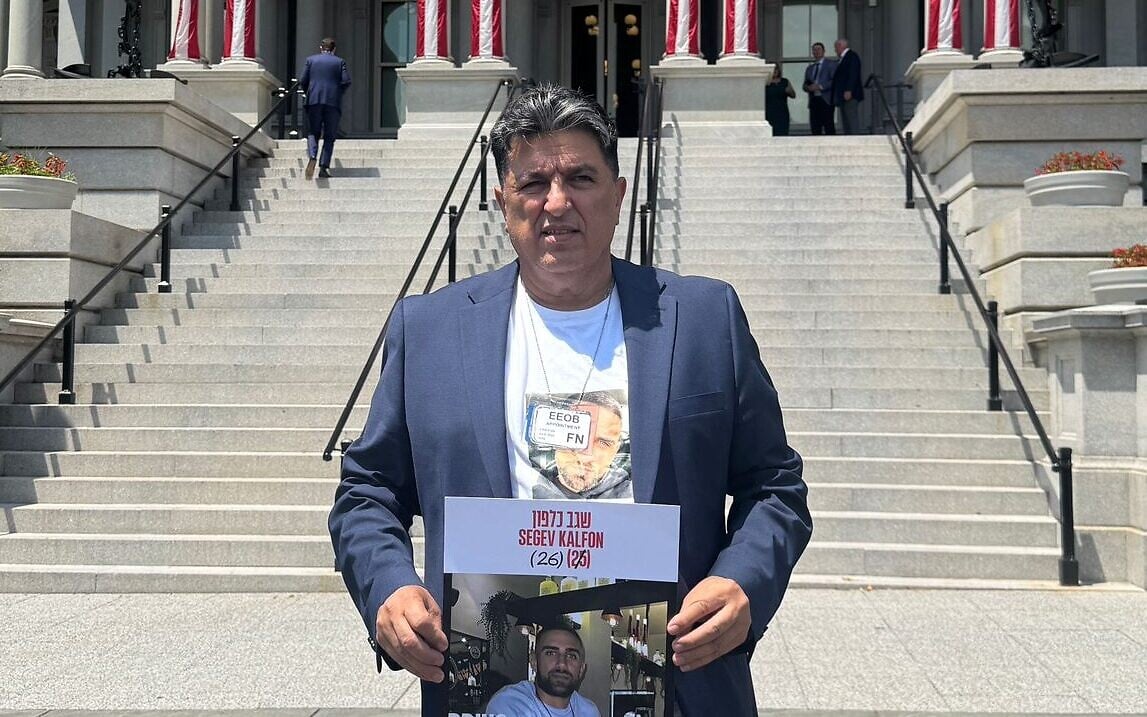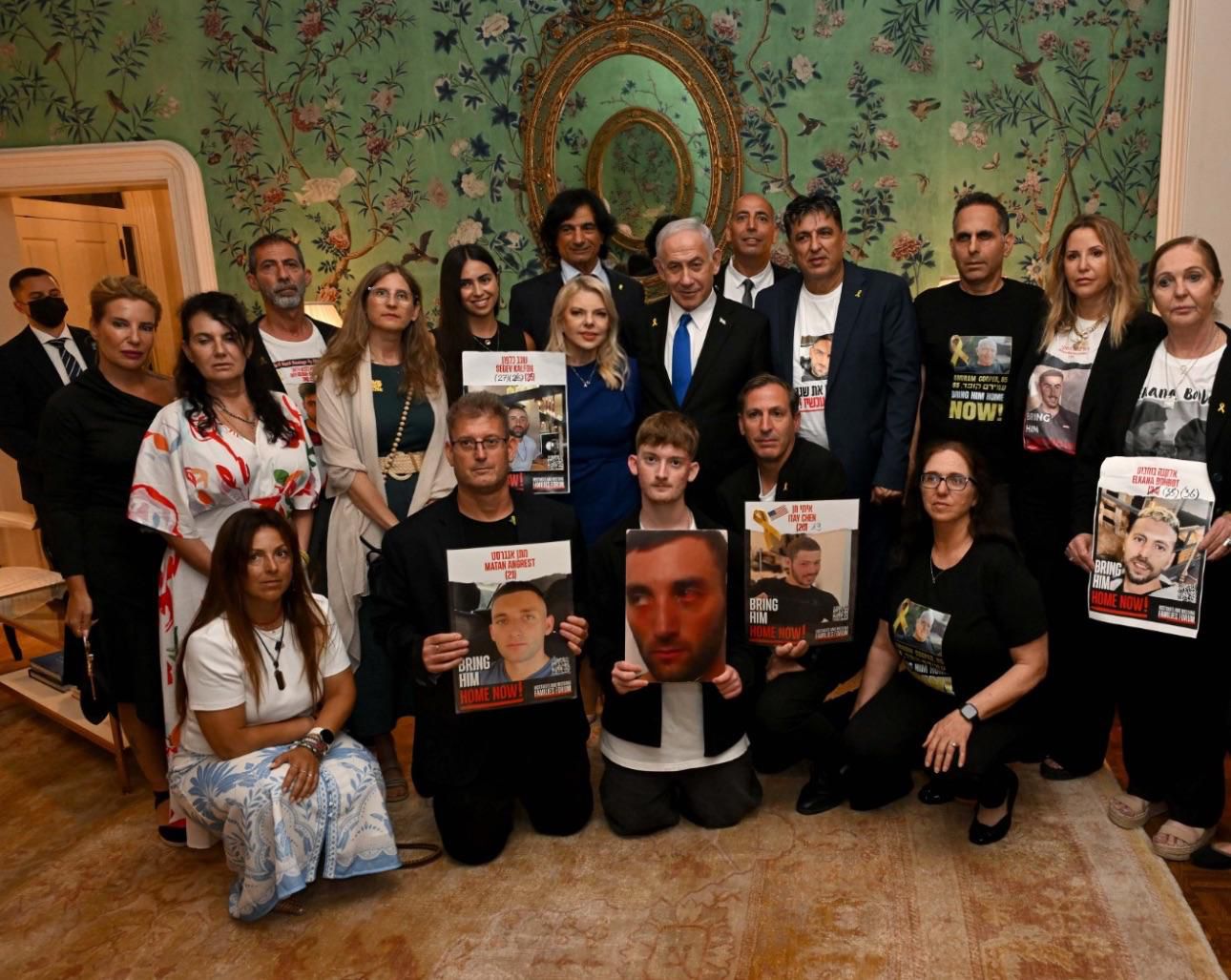


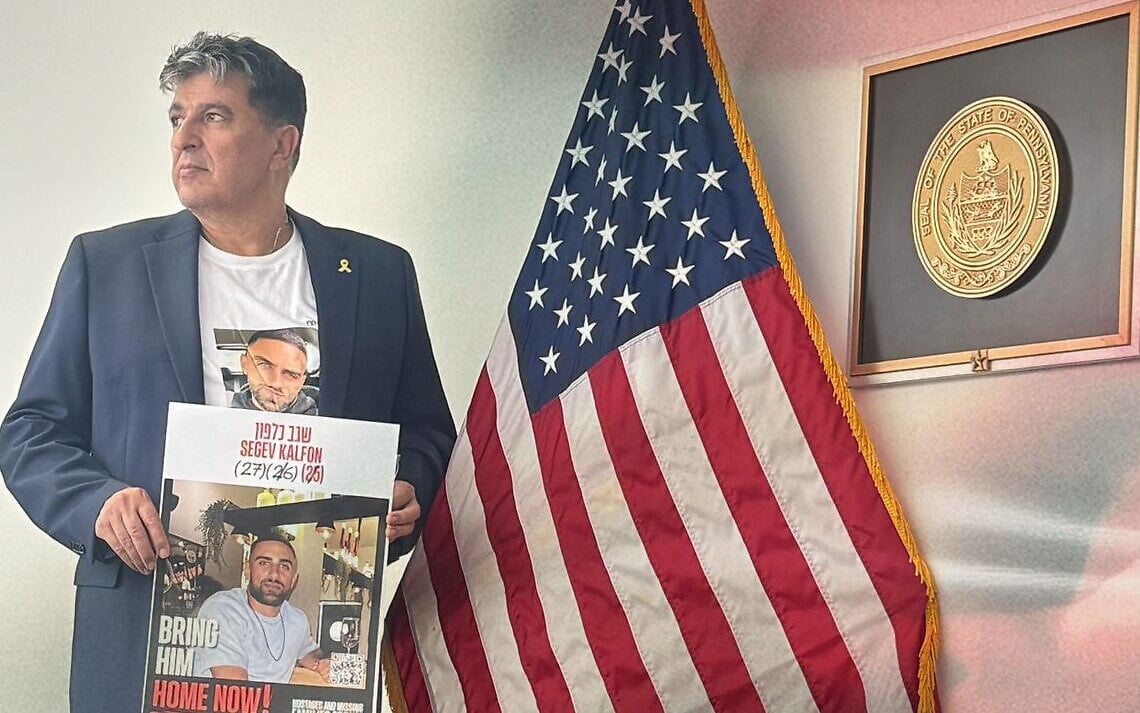
For much of the last 21 months, since Segev Kalfon was taken captive on October 7, 2023, by Hamas terrorists at the Nova desert rave, his father has been wary of publicizing his son’s plight.
“I was scared to speak about Segev,” said Kobi Kalfon in an interview with The Times of Israel. “At the very start, someone senior said to me, ‘I don’t know if running to the media is good for Segev.'”
The intimation was that Segev, then 25, who had previously served in the IDF, could become more of a target for the Hamas terrorists holding him captive.
As they grappled with Segev’s captivity, the family focused on religious rituals and prayers to bring their son home, hosting challah-baking events as a symbol of hope and unity, and dedicating a Torah scroll in Segev’s name.
But things changed in the last six months.
During the more recent ceasefire in January 2025, when 33 women and men were released, the men were either older or had a known chronic medical condition.
While the Kalfons had shared details with officials about Segev’s diagnosed anxiety disorder, the result of an accident a few months before October 7, they didn’t realize the relatively new condition could be considered a chronic illness that could possibly have made him eligible for inclusion on the list of those to be released.
As hostage talks have stopped and started over the last weeks, with a potential eight to ten hostages being released in the first stage of another ceasefire, hostages’ families have repeatedly expressed concern and anguish over how those to be released are selected.
“How do they choose? Epilepsy, PTSD, and asthma; they’re all chronic conditions. How do you decide when you can’t see the patient?” said Kalfon. “Is anxiety diagnosed at 27 less serious than having been diagnosed with asthma back when someone was 7?”
Segev, now 27, is the middle son of three siblings, and he works as the production manager at Kalfon’s large Dimona bakery, which employs 30 people and supplies hotels in the Dead Sea area and the Hebron Hills. Kobi and Galit Kalfon both grew up in Dimona, and aside from a brief period that Kobi spent in Boston, the two have spent their adult lives in the southern desert city best known for being the site of Israel’s nuclear program.
While working at the bakery, Segev was also studying finance at a Tel Aviv college in the year before October 7. While running for exercise he broke his leg badly, developing in the process a severe form of anxiety.
“We didn’t know what it was from,” said Kalfon, describing several instances when Segev ended up in the emergency room experiencing serious anxiety attacks that were described by doctors as a kind of panic disorder.
Segev was prescribed medications in September 2023, as well as nature therapy to learn how to walk and breathe properly.
On October 6, Segev spent the holiday evening with his family and told them he was going to a party that night in the south.
“We got up the next morning to something like 640 sirens,” said Kalfon.
When they called Segev, they found out that the party was the Nova festival being held in Re’im, next to the Gaza Strip, and that he and his friend, Asaf Harush, were in the car trying to escape but were stuck in a massive traffic jam as all the partygoers tried to flee the chaos.
“We were on the phone for an hour with him until 8:10 a.m.,” said Kalfon. “It was crazy, atomic pressure. I told them just to run.”
At one point, as they attempted to escape the terrorists attacking the party, Asaf scrambled into a roadside ditch and Segev tried to cross Route 232, the road that became known as the “road of death,” used by Hamas to kill hundreds of partygoers and kidnap dozens.
“Asaf saw it all happen,” said Kalfon, who had driven to Soroka Hospital in Beersheba in the hopes that he would find Segev there.
Hours later, Kalfon’s eldest son called his father and told him to come home to Dimona, where Asaf had arrived, dusty, unharmed, but without Segev.
“I got there in 15 minutes; it’s usually a 30-minute drive,” said Kalfon.
As Asaf told them about seeing the Hamas terrorists approach in three cars, their heads wrapped in green scarves as they grabbed Segev while failing to notice Asaf, Kobi said he collapsed to the ground.
Two months later, the army found a video of the hostage-taking.
“I crashed again,” he said. “You see your son being taken. Oh my God.”
When former hostage Ohad Ben Ami was released from captivity in February, emaciated and wan, he called Kalfon days after he was brought home to tell him about being held captive with Segev.
“I started crying like a child,” said Kalfon.
Ben Ami, 56, who was taken hostage from his home in Kibbutz Be’eri, and Segev were held together for a year in Gaza.
“‘I know your bakery, I know your mother, I know your father, I know your brother, I know your son, I know how many teeth you have,'” said Ben Ami to Kalfon, describing the tremendous number of personal details and conversations that he and Segev shared during their months of captivity, as they and four others were held in a six-meter (65 square meter) tunnel below Gaza.
“He said, ‘Kobi, do whatever you can to bring your son home very fast,'” said Kalfon. “‘He can’t take it. It’s terrible conditions, such hard, abnormal conditions.'”
Kalfon said he crumpled when he heard Ben Ami’s descriptions of being held in captivity with his son. But following the realization that Segev’s medical condition could be considered chronic, and hearing from Ben Ami about how Segev’s anxiety affected him in the impossible conditions of captivity, he decided to become more public about Segev.
“I decided to talk, and not be quiet any longer. I felt very anxious,” he said. “If there’s a deal, who will decide?”
Kalfon joined missions to the US, he and his wife began interviewing with the media, and their town hosted a gathering of Shift 101, the mostly silent sit-in protest for the hostages that is held several times a week in front of government institutions. Dimona Mayor Benny Bitton, a Likud politician and avid supporter of Netanyahu, was present as well.
Kalfon has also discovered a wellspring of support from several American Jews who have told him to trust US special envoy hostage to the Middle East Steve Witkoff.
“They’ve said it’s a gift that we have a very smart guy who knows how to do big business,” said Kalfon.
“He looked me in the eye and said, ‘I will bring your son home and all the hostages because it’s a mitzvah for me,'” said Kalfon, who met Witkoff during one of the envoy’s recent visits to Israel. “He said, ‘I lost my son Andrew, and I feel that it’s my will. We are all Jewish — and when you save one soul it’s like saving 1,000 souls.'”
Since then, Witkoff has made a point of personally helping the Kalfons, including taking care of their accommodations while in the US.
During a recent trip to Washington, DC, Kalfon sat with the prime minister and other hostages’ families in Blair House, the White House guesthouse, during Netanyahu’s recent White House visit, and heard the prime minister tell them he and Trump have a plan that they can’t talk about but which will bring the hostages home.
“He told us we need patience,” said Kalfon, who described the prime minister’s body language as serious.
“I want to believe him,” he said. “Bibi said it’s very hard, but it can be done.”
Kalfon said he is a realist who thinks about Israel’s place in the Middle East, who worries about security for his kids and future grandkids.
He thinks of the Hamas terrorist attack of October 7 as something abnormal in Israel’s security history.
“I voted for him for security. I’m not a huge Likudnik,” said Kalfon, referring to Netanyahu’s Likud party. “I’m studying now how it works in the US, and trying to understand what happens in Knesset committees. I don’t care about politics, I just want my boy back.”
“I want to believe, I’m a believer,” said Kalfon, who studies Kabbalah every night. “If I didn’t have belief, I would really fall apart. It’s been 650 days.”

